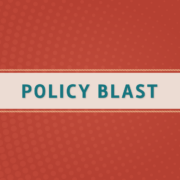Senators Reiterate Trust Responsibility and Highlight Necessity of Mandatory Funding in IHS FY 2024 Appropriations Hearing
On May 10, 2023, the Senate Appropriations Subcommittee on Interior, Environment, and Related Agencies held a hearing, chaired by Senator Merkley, to review the President’s Budget for Fiscal Year (FY) 2024 for the Indian Health Service (IHS). Testimony was provided by Roselyn Tso, IHS Director and Bryan Newland, Assistance Secretary for Indian Affairs within the Department of the Interior. Topics addressed include the proposal to shift from discretionary to mandatory spending, which Director Tso highlighted as the most appropriate long-term solution to the historical underfunding of IHS. The National Council of Urban Indian Health continues to advocate for full funding for IHS and Urban Indian Health and maintain advance appropriations until mandatory funding is enacted in FY 24.
Updates from IHS and Director Tso
Director Roselyn Tso was questioned directly by Senators on various initiatives and programs. The biggest issue raised by Senator Merkley was the proposal to shift contract support costs and 105(l) leases to mandatory funding. Senator Murkowski expanded on this and inquired about any statutory language or legal definition of what these costs are, which would be helpful for Congress when working to reclassify them. Director Tso discussed the importance of contract support costs and 105(l) leases as tools for tribal self-governance.
Senator Murkowski reiterated her support for advanced appropriations but wanted an update as to any authorizing language regarding this legislative proposal to shift to mandatory funding. Jillian Curtis (Director of the Office of Finance and Accounting at IHS) informed that they will work with the Office of Management and Budget (OMB) on a tribal consultation which took place in June, with the goal that it will inform a better legislative package.
Other updates include:
- Senator Merkley raised the issues of vacancy rates and employee retention, specifically the nurse preceptorship program, which was highlighted as an important goal of IHS. Their request is 1 million dollars to provide training development and support to replenish the workforce they have lost with older generations, as well as integrate recent graduates. IHS is also requesting the elimination of the tax related to loan repayment.
- Senator Merkley also inquired about the Community Health Aide Program (CHAP) Expansion to the lower 48 states and how this proposed expansion would be implemented. IHS is moving forward with Portland Area expansion and have plans for the Billings Area as well. They are planning to work closely with the Alaska program to uplift the program nationally.
- Director Roselyn Tso’s Full Testimony
Senator Merkley Emphasized the Importance of a Funding Increase to Eliminate the Health Care Gap
Through his remarks, Senator Merkley pointed to IHS receiving a $2.5 billion increase as a solution to the health care disparities faced within the American Indian and Alaska Native community. He also mentioned how advanced appropriations were a significant achievement for FY 23, and that they would like to build off of this. Within the IHS budget proposal for FY 24, there is a mandatory reclassification proposal for contract support costs and 105(l) leases, which he supports, because reclassifying funds as mandatory would promote and allow for tribal self-governance.
Senator Murkowski Reflected on the Importance of Upholding the Trust Responsibility as a Bipartisan Priority
Senator Murkowski opened her remarks by stating, “this subcommittee has always worked together to fund essential programs that serve our Tribes and Native communities…I think we have made upholding the federal government’s trust responsibility a bipartisan priority. It needs to continue to be so.” She then highlighted how FY 24 increases almost every budget line, but she noted her disappointment that the budget proposal doesn’t focus on successful implementation of advanced appropriations, but instead proposes mandatory funding for IHS beginning in 2025 without any accompanying legislative text. She also listed her important IHS priorities that have remained unchanged:
- Funding for VBCs (Village Built Clinics);
- Facilities construction accounts;
- Programs that support Alaska Dental Health Therapy;
- Community Aide Health Programs;
- Contract Support Costs; and
- 105(l) lease payments
She emphasized that due to ongoing questions surrounding costs for these programs and initiatives, it has spurred additional court cases and created budget uncertainty. IHS currently has an unobligated balance that needs to be addressed, so the Senator urged IHS to be open and transparent during their conversations so that the best services possible are provided.
Senator Murray Remarked on the Importance of Committing to Federal Investments
Senator Murray discussed the importance of these programs and how we cannot let partisan infighting negatively impact them. She emphasized this point by discussing the Default on America Act and its impact on IHS, by cutting funding by nearly a billion dollars and taking care away from 2.5 million people. The work being done in the Subcommittee is an opportunity to demonstrate a commitment to tribal communities, so any support needs to be reflected through funding. She reiterated this by stating, “it is important we are holding this hearing today to make sure our nation meets its obligations to our Tribes—honoring their sovereignty and providing the federal investments that we have promised.”






Leave a Reply
Want to join the discussion?Feel free to contribute!